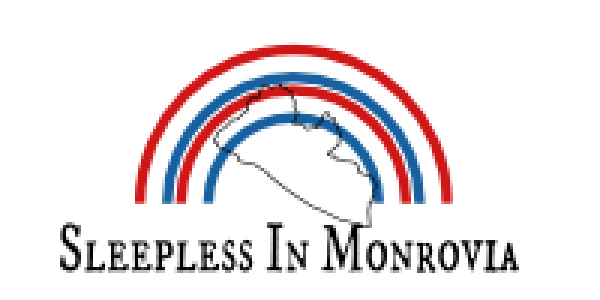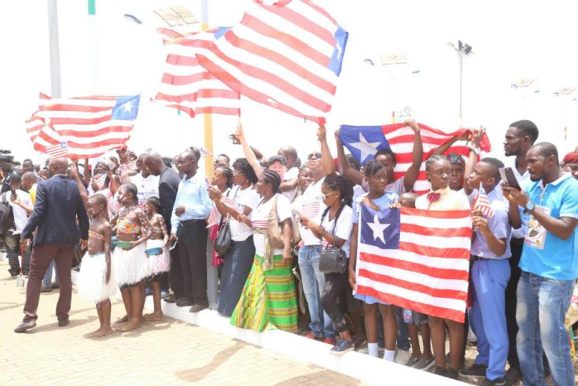2020 is the start of a decade that feels like a breakthrough to another side of humanity. We are rethinking everything, reinventing ourselves in a way, and evolving under the pressure of a global pandemic. A pandemic that has exposed inequalities across cultures. Globally, oppressed people are rising up, and how they do so has been a topic of much conversation and frustration. However, the simple bottom line is this, you cannot expect oppressed people to politely ask to be freed of their oppression. This was the case in 1980 when a group of indigenous Liberians overthrew a majority Congau government & system. A system deeply entrenched in classism with a minority ruling class that neglected to develop Liberia & its people beyond their own interests. Liberation for indigenous Liberians was prioritized with blood shed and destruction.
Congau and Americo-Liberian people, a group blended together in more of an elite class than an ethnic group, consists of Africans that either chose to leave or were coerced to leave the Americas (mixed in with a few families from the Caribbean) to establish the first Pan African country in Africa in the early 1800s. Meanwhile, indigenous Liberians unknowingly awaited a dramatic shift in their fate, perhaps the unintended consequences caused by those who sold their own kin into slavery in the first place.
It took 25 years, between 1822 to 1847, for the American Colonization Society to recognize Liberia as an independent country, although it played such an active role in its conception. What occurred in that quarter century would lay the foundation for the deep wounds that we are still healing from as a nation, 173 years later. Those that survived the journey across the Atlantic ocean back home, back to the Africa they were stolen from, met their sisters & brothers with traumatized eyes – dehumanized by slavery and discovering the nasty side effects of it even an ocean away.
Learned behaviour from its colonizer, the watchful eye that did not recognize this nation until it’s civil war exposed its ugly habits that were hard to break, particularly in the south. The same habits that threaten its stability today. This racism poisoned Liberia’s future through colorism and classism. We cannot change our past but we can choose love now by sharing privilege for a more equitable Liberia, that we can all actually enjoy sustainably. The very same thing that Caucasian people globally have to do.
Yes, Congau privilege is real, so is the tax. What is ‘Congau tax’? The expectation that you will feed the masses, likely attend funerals in Bentol / Careysburg, and are somehow responsible for the global class systems at play in this West African nation. Dead Aid, a book by Dambisa Moyo, outlines the harmful results of ineffective aid in Africa. One of which is the unsustainable expectation that some “savior” will come to our rescue. We suffer greatly from this mindset in Liberia. This, coupled with the elite class’ tight fist in which most of the opportunities were held in pre-coup Liberia, has created a culture of dependency by the majority of Liberians – who unfortunately find themselves with little education and few options. The lack of development means the lack of schools and systems that give everyday Liberians a fighting chance in the world. It all ends up in the assumption that those that have obtained wealth in Liberia have done so through immoral means, and even if they obtained it with integrity, it must be shared. This is the tax of generational wealth in this country.
In actuality, the current world state has sent many of us into deep retrospection as COVID-19 slows international aid. Every nation is much more concerned with its own problems to fix ours. Feeding ourselves, an almost certainty ahead, is causing us to humble ourselves back to the soil, to cultivate our own and live locally; a route that has the immense potential to lift us from our current dismal state.
The new dawn of today, our post conflict vision, gives us the opportunity to look back; not to attribute blame but to accept, analyze & grow from our past mistakes. Can we see things clearer now that we have hindsight? Can we forgive? Let us recognize the humanity of our ancestors, compassionately accepting the poor judgment of many of them. Perhaps they could not do better so close to the devastation of the Transatlantic slave trade, so close to horrors we can only imagine.
The original pan African state on the continent. A legacy that we bear as Liberians to actualize. By faith, I believe we are capable. I think we have learned some important lessons in our pain. The dynamism of Liberia’s youth gives me hope. Although still a minority, there are brilliant, passionate, progressive young people that I am honored to witness find solutions to Liberia’s big problems with courage. Those solutions present themselves in the private sector through innovative businesses and in the public sector through policies and the impactful meetings that chart the course of our future as a nation. On this July 26, let’s live up to the purest intention of this place, a land of liberty; a happy land of Pan Africanism and progress. Let’s unlearn our prejudices and learn gratitude for our diversity as we redefine our new Liberian identity, together.
Authored by: Nykita B.G. Diggs (www.creativeafrik.com)
Featured Image by: Minnesota Spokesman Recorder

